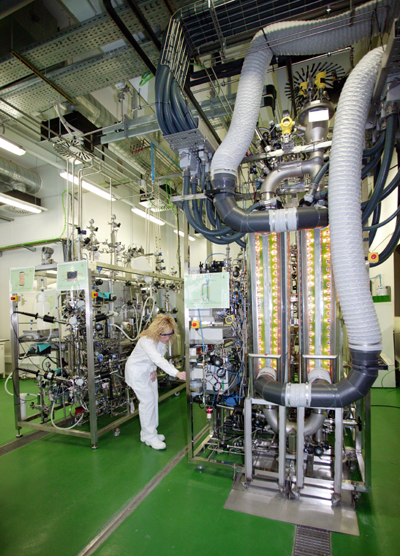Biography : Marco Volponi is a scientist and engineer with a profound passion for space. After graduating in theoretical physics at the university of Genoa and Amsterdam, he completed the international master SEEDS (SpacE Exploration and Development Systems), where the objective was designing the first manned outpost on the surface of Mars. Subsequently he worked at ThalesAleniaSpace Italia, mainly on PFPU - a project which aims to grow potatoes in space - and on EDEN-ISS, designing, building and sending an autonomous greenhouse in Antarctica. Now he's working at ESA, contributing to the MELiSSA projects, which aims to develop the first closed life support systems for humans in space.
An overview of the MELiSSA Project
Abstract : Living in space is tough. Basically space lacks all the elements needed to sustain life, so astronauts have to carry all the resources essential for their survival: first and foremost, water, oxygen and food. The furthest we want to go from Earth, the more difficult it becomes to resupply the astronauts: the necessity to recycle these resources quickly becomes unavoidable. So, the idea of "closing the loop" arise, and this is exactly what the MELiSSA project is trying to achieve. Taking inspiration from small lakes processes, MELiSSA harnesses the power of the most suitable physical, chemical and biological reactions to create a system able to regenerate food, oxygen, potable water. The parallel and concurrent demonstrators both on ground and on orbit are getting this concept every day closer to reality. In the meantime, down on Earth, we all benefit from these studies: various spin-off have arisen, from a bacteria that fights bad cholesterol to treating grey water in an Antarctica base, passing through solar-powered water generator in Morocco and buildings reducing CO2 with algae in Paris.
 A view inside the MELiSSA
A view inside the MELiSSA
References
A Feasibility Study for A Short Duration Human Mission to the Martian Surface
Dec 2016 - Acta Futura, Issue 10 - ESA
http://doi.org/10.5281/zenodo.202747
Status of the EDEN ISS Rack-like food production unit after five months in Antarctica
Jul 2018 - ICES (International Conference on Environmental Systems)
The MELiSSA project on the ESA website:
https://www.esa.int/Our_Activities/Space_Engineering_Technology/Melissa
|









